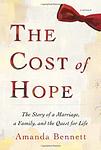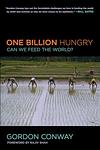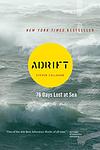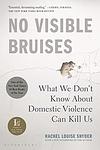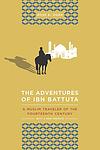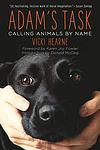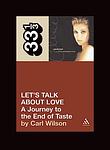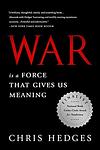The Greatest "Nonfiction" Books Since 1980
Click to learn how this list is calculated.
This list represents a comprehensive and trusted collection of the greatest books. Developed through a specialized algorithm, it brings together 300 'best of' book lists to form a definitive guide to the world's most acclaimed books. For those interested in how these books are chosen, additional details can be found on the rankings page.
Genres
Countries
Date Range
Reading Statistics
Click the button below to see how many of these books you've read!
Download
If you're interested in downloading this list as a CSV file for use in a spreadsheet application, you can easily do so by clicking the button below. Please note that to ensure a manageable file size and faster download, the CSV will include details for only the first 500 books.
Download-
1076. Qed by Richard P. Feynman
The book provides an accessible introduction to the principles of quantum electrodynamics, one of the cornerstones of modern physics. Through a series of lectures, the author explains complex concepts like the interaction of light and matter, and the role of antimatter in simple, clear terms. The narrative is infused with the author's characteristic wit and enthusiasm for the subject, making it engaging for both scientists and non-scientists alike. The book demystifies a challenging field of study, presenting it in a way that is both comprehensible and fascinating, highlighting the beauty and strangeness of the quantum world.
-
1077. The World Until Yesterday by Jared Diamond
This book provides a comprehensive examination of traditional societies, drawing on the author's extensive fieldwork and the broader anthropological record to explore what the modern world can learn from people who have lived in small, close-knit communities for thousands of years. It delves into various aspects of traditional life, including conflict resolution, child-rearing practices, treatment of the elderly, and risk management, offering insights into human behavior and social evolution. The work challenges readers to consider the benefits and drawbacks of both traditional and modern societies, suggesting that understanding our past can offer valuable lessons for addressing contemporary issues.
-
1078. The Signal And The Noise by Nate Silver
This book explores the world of prediction, delving into how we can distinguish a true signal from a universe of noisy data. Through a series of engaging case studies—from baseball, to weather forecasting, to the stock market—the author demonstrates the art and science of predictive analytics. He argues that while our predictive capabilities are far from perfect, by understanding the inherent uncertainties and applying statistical models wisely, we can improve our ability to forecast future events. The book emphasizes the importance of thinking probabilistically and recognizing the limitations of our predictions in an increasingly complex world.
-
1079. Sustainable Materials by Julian M. Allwood
This book provides a comprehensive exploration into the world of sustainable materials, focusing on the environmental impact of material production and usage. It delves into the science and engineering behind creating materials that are not only durable and functional but also minimize harm to the environment. Through a detailed analysis of various materials, the book offers insights into how industries can shift towards more sustainable practices. It emphasizes the importance of reducing material consumption, recycling, and reusing resources as key strategies for achieving sustainability. The book serves as a crucial resource for engineers, designers, policymakers, and anyone interested in the sustainable development of materials and its significance for the future of the planet.
-
1080. Tap Dancing To Work by Carol J. Loomis
This book offers an insightful compilation of articles, essays, and exclusive content chronicling the remarkable career of one of the world's most respected and influential investors. Spanning over five decades, it provides a unique, behind-the-scenes look into his investment strategies, business wisdom, and the evolution of his conglomerate. Through the lens of a close friend and seasoned financial journalist, readers gain access to a treasure trove of personal anecdotes, professional milestones, and the investment philosophy that turned a modest stake into a colossal fortune. This collection not only celebrates the achievements of a financial legend but also serves as an invaluable resource for anyone interested in the art of investing and the principles of business success.
-
1081. Abundance by Peter Diamandis
This book presents an optimistic vision of the future, arguing that technology and innovation have the potential to solve many of the world's most pressing problems, including scarcity of resources, energy, water, and food. The author posits that through the power of exponential technologies, DIY innovators, technophilanthropists, and the rising billion of the world's population, we are on the cusp of creating a world of abundance. The narrative challenges the prevailing pessimism of our times, offering a roadmap for leveraging advancements in areas such as artificial intelligence, robotics, and digital manufacturing to create a future where everyone has access to all they need.
-
1082. Why Nations Fail by Daron Acemoğlu, James A. Robinson
This book delves into the origins of power, prosperity, and poverty, arguing that the fate of nations is determined not by geography, culture, or ignorance, but rather by the institutions that shape economic incentives and political power. It contrasts inclusive institutions, which enable and encourage participation by the great mass of people in economic activities that make the best use of their talents and skills, with extractive institutions, which are designed to extract incomes and wealth from one subset of society to benefit a different subset. Through a wide array of historical examples and analysis, the authors demonstrate how the interplay between these institutions has led to divergent paths of development among nations, suggesting that those with inclusive institutions tend to enjoy greater prosperity and success.
-
1083. The Art Of Being Unreasonable by Eli Broad
This book delves into the unconventional principles and practices that have driven the success of one of America's most successful entrepreneurs and philanthropists. It challenges conventional wisdom by advocating for a mindset that embraces unreasonable thinking, arguing that high expectations and rejecting the status quo are essential for achieving extraordinary results. Through personal anecdotes and insights, the narrative explores how being unreasonable can lead to innovation, effective problem-solving, and the realization of ambitious goals. The author shares strategies for leveraging this approach in various aspects of life and business, encouraging readers to question assumptions, take calculated risks, and persistently pursue their visions.
-
1084. The Cost Of Hope by Amanda Bennett
This book is a poignant memoir that delves into the emotional and financial journey of a woman and her husband as they navigate through his battle with kidney cancer. It's a deeply personal exploration of the healthcare system, the complexities of treatment options, and the impact of these decisions on their family's life and finances. The narrative weaves together a love story with a critical look at the costs—both literal and metaphorical—of pursuing hope in the face of terminal illness. Through her story, the author sheds light on the broader implications of medical decision-making and the healthcare industry, prompting readers to consider the true value of hope and the lengths to which one would go to fight for a loved one's life.
-
1085. A World Class Education by Vivien Stewart
This book provides a comprehensive analysis of the education systems of top-performing countries and distills key strategies and practices that contribute to their success. It explores how nations such as Finland, Singapore, and Canada have achieved world-class educational outcomes by focusing on teacher quality, a rigorous curriculum, and a culture of high expectations. The author argues that for the United States to remain competitive in the global economy, it must learn from these countries and implement similar policies and practices. The book serves as a call to action for educators, policymakers, and stakeholders to transform the American education system by adopting a more global perspective on learning and teaching.
-
1086. One Billion Hungry by Gordon Conway
This book provides a comprehensive examination of the global hunger crisis, emphasizing the urgent need for sustainable solutions to feed a rapidly growing world population, projected to reach nine billion by 2050. It delves into the complexities of food security, exploring innovative approaches to increase agricultural productivity, enhance nutritional value, and ensure equitable access to food. The author, an expert in sustainable agriculture, argues for a multifaceted strategy that combines advancements in science and technology with policy reforms and community engagement. By presenting a blend of case studies, research findings, and personal insights, the book aims to inspire action and optimism in addressing one of the most critical challenges of our time: ensuring that a billion people currently facing hunger have access to sufficient, nutritious food.
-
1087. Interventions by Kofi Annan
This book is a compelling memoir and a detailed account of the diplomatic life of one of the world's most esteemed peacemakers. Through a series of engaging narratives, the author shares his experiences and the lessons learned during his tenure as the Secretary-General of the United Nations. He delves into the complexities of negotiating peace, fostering development, and promoting democracy across the globe, while also addressing the myriad challenges he faced, from conflicts and wars to global health crises and the fight against poverty. The author's insights into the intricacies of international diplomacy and his unwavering commitment to peace and justice make this work an invaluable resource for understanding the efforts required to sustain global harmony and security.
-
1088. Adrift by Steven Callahan
"Adrift" is a gripping true story of a man who survives 76 days lost at sea. After his small sailboat is destroyed in a storm, the author fights for survival on an inflatable life raft, facing relentless sun, violent storms, shark attacks, and the constant, gnawing hunger. His resourcefulness and will to live is a testament to the human spirit and its instinctual will to survive, even in the face of seemingly insurmountable odds.
-
1089. Stamped by Jason Reynolds, Ibram X. Kendi
This book offers a gripping exploration of the history of racist ideas in America, tracing their origins and evolution over time. It challenges the conventional narrative by examining the role of influential figures and pivotal moments that have contributed to the perpetuation and dissemination of these ideas. Aimed at a younger audience, the text presents a thought-provoking and accessible account of the insidious nature of racism, encouraging readers to reflect on their own beliefs and the societal structures that uphold racial inequities. Through a powerful and engaging narrative, the book seeks to empower readers with knowledge and the impetus to be part of the solution in creating a more just society.
-
1090. Trampling Out The Vintage by Frank Bardacke
"Trampling Out The Vintage" is a comprehensive historical account of the United Farm Workers (UFW) movement, focusing on its charismatic leader, Cesar Chavez, and the broader labor struggles of farm workers in the United States. The book delves into the intricacies of union politics, the challenges of organizing in the agricultural sector, and the impact of Chavez's leadership style on the movement's trajectory. It provides a detailed examination of the UFW's rise to prominence in the 1960s and 1970s, its successes and setbacks, and the complex dynamics between workers, union leaders, and growers, offering a critical analysis of the factors that shaped the labor landscape in American agriculture.
-
1091. The American Crucible by Robin Blackburn
"The American Crucible" furnishes a comprehensive analysis of the politics and power dynamics of slavery and emancipation across the Americas from the colonial period through the 19th century. It explores how the interplay of various economic, cultural, and political forces influenced the systems of slavery and their eventual dismantlement in regions such as the Caribbean, Brazil, and the United States. The book delves into the contradictions of these slave systems and the global impact of their existence, examining the struggles for power among different social groups and the ideologies that underpinned and justified slavery and its abolition.
-
1092. The Life Changing Magic Of Numbers by Bobby Seagull
This book is a passionate exploration of the world of numbers and how they shape our daily lives, written by an enthusiastic mathematician and educator. It serves as both a personal narrative and a guide to the practical applications of mathematics, aiming to demystify mathematical concepts and demonstrate their relevance. The author uses anecdotes, puzzles, and real-world examples to illustrate the beauty of mathematics and its crucial role in everything from personal finance to sports, music, and beyond. The book seeks to inspire a newfound appreciation for numbers and their life-changing magic, encouraging readers to see the subject not as a daunting school topic but as a powerful tool for making sense of the world around us.
-
1093. The Club by Leo Damrosch
"The Club" by Leo Damrosch is a non-fiction book that explores the lives and friendships of a group of influential men in 18th century England known as the "The Club". The members of this group included notable figures such as Samuel Johnson, Edmund Burke, and Joshua Reynolds. Through their meetings and discussions, they shaped the intellectual and cultural landscape of their time, and their legacy continues to influence modern society. The book provides a fascinating insight into the lives of these men and the impact they had on the world around them.
-
1094. No Visible Bruises by Rachel Louise Snyder
"No Visible Bruises" by Rachel Louise Snyder is a powerful and eye-opening book that explores the issue of domestic violence. Through a combination of personal stories, statistics, and research, Snyder reveals the devastating impact of domestic violence on individuals, families, and society as a whole. She also highlights the flaws in the criminal justice system and the societal attitudes that perpetuate this cycle of violence. This book is a must-read for anyone who wants to understand the complex and urgent issue of domestic violence and work towards creating a safer and more just society.
-
1095. Home: A Short History Of An Idea by Witold Rybczynski
"Home: A Short History of an Idea" explores the evolution of the concept of home from medieval times to the modern day, examining how domestic comfort and the idea of privacy have developed over the centuries. The book delves into architectural, cultural, and social changes, illustrating how homes have transformed from mere shelters to places of comfort and personal expression. Through an analysis of various elements such as lighting, heating, and interior design, the author provides insights into how the notion of what makes a house a home has shifted, reflecting broader changes in society and individual expectations.
-
1096. Simone Weil: An Anthology by Simone Weil
This anthology is a comprehensive collection of writings by the French philosopher and political activist Simone Weil. It encompasses a wide range of her thoughts, covering topics from philosophy and spirituality to politics and ethics. The selections in the anthology highlight Weil's profound insights into the human condition, her exploration of the nature of truth and justice, and her deep commitment to empathy and compassion. Her reflections on oppression, liberty, and the need for social justice are particularly poignant, offering readers a rich perspective on the struggles and aspirations of the 20th century.
-
1097. The Adventures Of Ibn Battuta by Ross E. Dunn
"The Adventures of Ibn Battuta" is a historical account that follows the journeys of the 14th-century Moroccan explorer Ibn Battuta, who traveled extensively across the Islamic world and beyond, covering parts of Africa, Asia, and Europe. The book provides a detailed narrative of his adventures, insights into the diverse cultures he encountered, and the various historical figures he met along the way. Through his travels, Ibn Battuta offers a unique perspective on the medieval world, making this book not only a recount of his life but also a valuable source for understanding the interconnectedness of different societies during that era.
-
1098. Adam's Task by Vicki Hearne
"Adam's Task" delves into the profound relationship between humans and animals, particularly focusing on the training and communication that occurs between them. The book argues that training animals, such as dogs and horses, is a form of mutual engagement that involves respect and a deep understanding of the animal's nature and needs. Through a blend of philosophy, literary analysis, and personal anecdotes, the author explores how this interaction can lead to a more meaningful and ethical coexistence, challenging conventional views on animal training and highlighting the potential for animals to exhibit virtues typically associated with human beings.
-
1099. Let's Talk About Love by Carl Wilson
"Let's Talk About Love" is a deep dive into the world of pop culture, specifically focusing on the polarizing figure of Celine Dion. The author explores the reasons behind Dion's extreme popularity and equally extreme criticism, using her as a case study to delve into the nature of taste and cultural consumption. The book challenges readers to question their own biases and preconceived notions about 'good' and 'bad' music, and what these judgments say about societal class, race, and gender norms.
-
1100. War Is a Force that Gives Us Meaning by Chris Hedges
This book is a profound exploration of the allure and devastating effects of warfare, written by a war correspondent who has experienced conflicts firsthand. It delves into the intoxicating nature of war, the reasons why societies are drawn to it and how it can give a sense of purpose, albeit a destructive one. The author also discusses the psychological impacts of war on individuals and societies, and the ways in which war can distort our understanding of love, friendship, and compassion.
Reading Statistics
Click the button below to see how many of these books you've read!
Download
If you're interested in downloading this list as a CSV file for use in a spreadsheet application, you can easily do so by clicking the button below. Please note that to ensure a manageable file size and faster download, the CSV will include details for only the first 500 books.
Download







